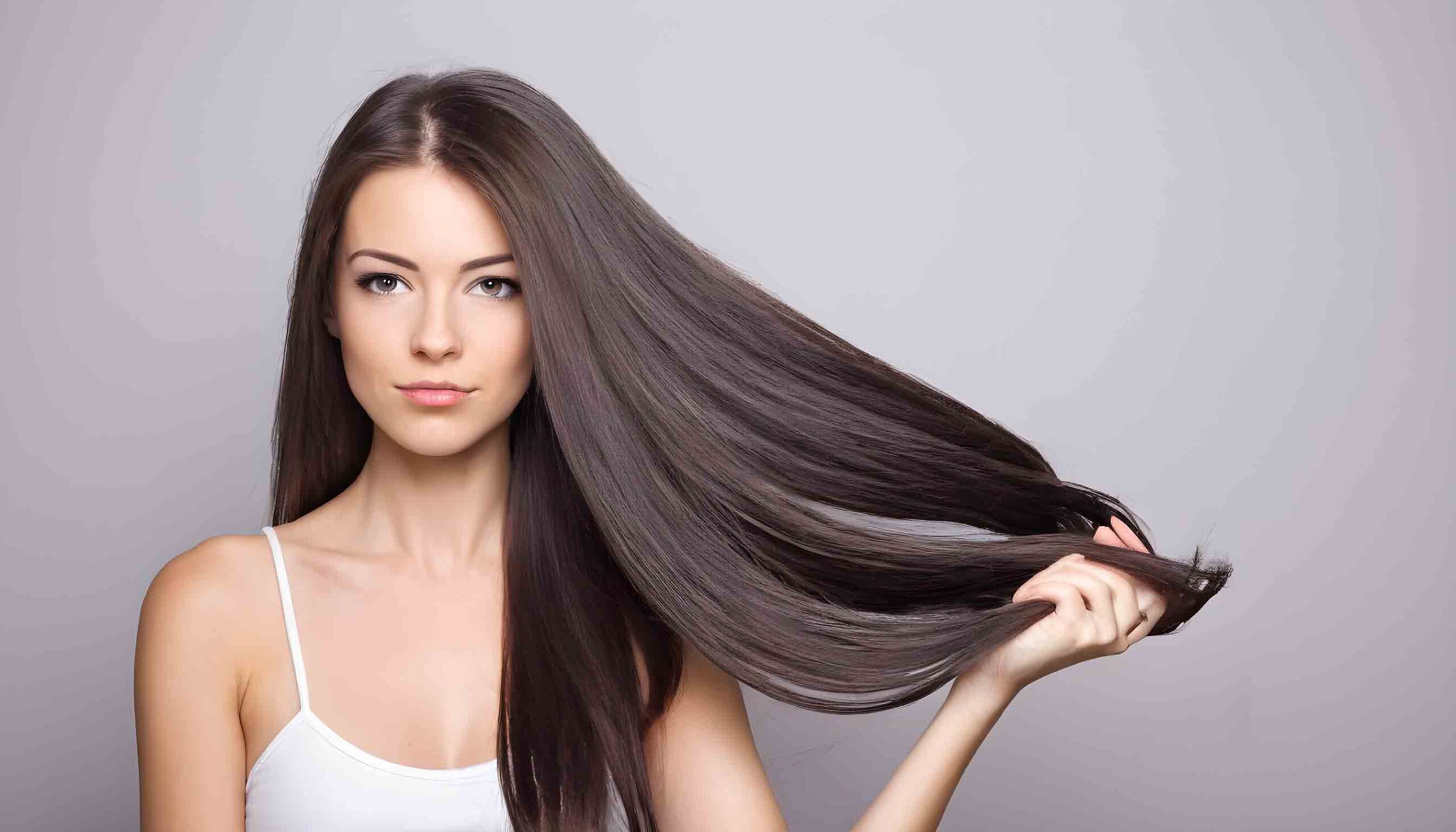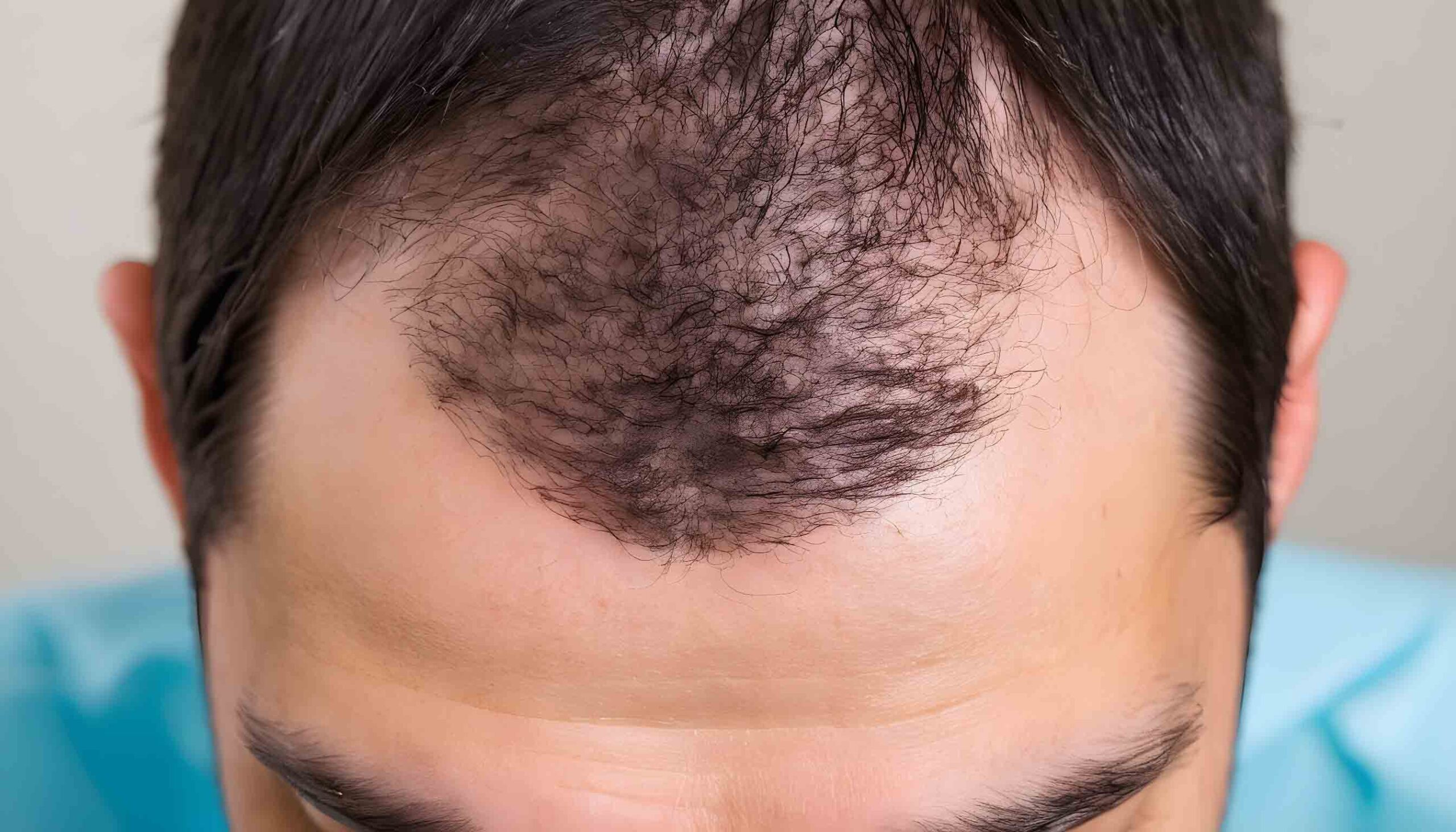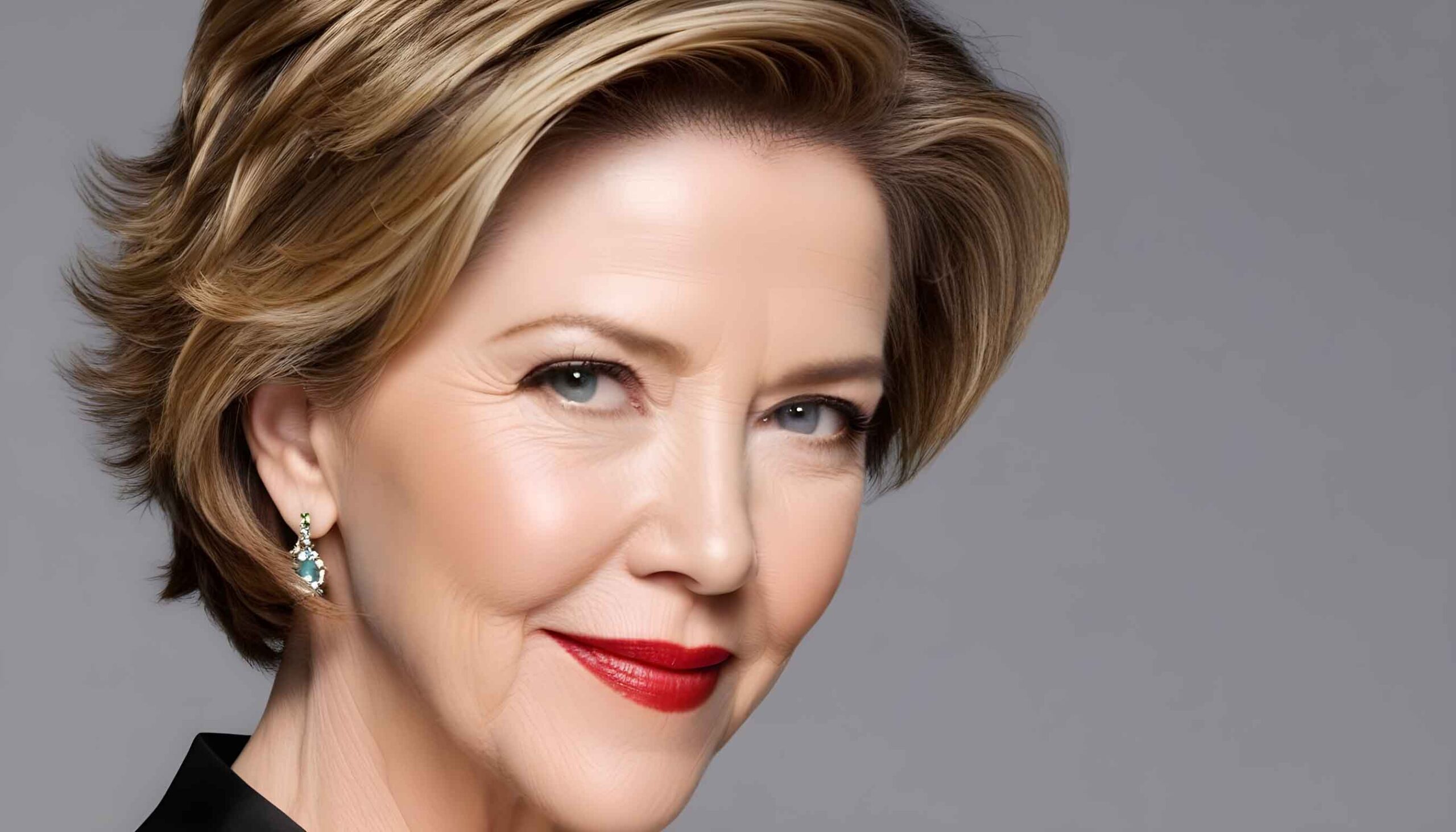Having healthy, strong hair is important for boosting confidence and enhancing your overall appearance. Adopting the right hair care habits can make a huge difference in the health and beauty of your locks. Here are some of the top healthy hair habits you should start following for gorgeous, shiny strands.
Brush your hair before you shower
Brushing your hair before showering helps detangle your strands and distribute the natural oils from your scalp down the hair shafts. This helps reduce breakage and split ends when washing. Use a wide-tooth comb or paddle brush and be gentle when brushing out knots.
Condition correctly — and with care
Conditioner should be applied to the mid-lengths and ends of your hair, avoiding the scalp. Let the conditioner sit for 1-3 minutes before rinsing out thoroughly. Conditioning helps replenish moisture, smooth the cuticle, and prevent breakage. However, over-conditioning can lead to limp, lifeless locks.
Take time for hair masks.
Deeply nourish your strands 1-2 times per week with a hydrating hair mask. Look for ingredients like argan oil, shea butter, and coconut oil. Apply the mask generously from roots to ends, putting your hair in a shower cap for 30 minutes before rinsing out. This intensive conditioning treatment helps repair damage and leaves hair incredibly soft.
Be mindful of key ingredients.
When choosing hair products, look for nourishing ingredients like keratin proteins, biotin, coconut oil, and natural botanical extracts. Avoid products with sulfates, parabens, silicones, and artificial fragrances which can be damaging. Read labels carefully.
Eat a balanced diet.
A healthy, balanced diet provides the nutrients your hair needs to stay strong. Make sure to get enough protein, iron, zinc, omega fatty acids, vitamin C, and vitamin D. Consider taking supplements if your diet is lacking.
Take a deep breath.
Chronic stress can negatively impact your tresses, leading to shedding and thinning. Make time for relaxing self-care like meditation, yoga, journaling, or whatever helps you de-stress and calm your mind. Deep breathing also increases blood circulation to your scalp.
Turn down the temp of your shower.
Scalding hot showers may feel great, but excessive heat can damage hair proteins and strip moisture from strands. Try to keep the temperature lukewarm or cool to avoid unnecessary damage to your locks.
Shield strands from the sun.
Just like your skin, hair needs protection from UV rays to stay healthy. Wear a hat in the sun, limit direct exposure, and use protective products. UV damage can dry out hair and cause it to become brittle.
Don’t skip your scalp.
Buildup on the scalp from hair products, oils, and pollution can clog follicles and inhibit growth. Use clarifying shampoos 1-2 times per week and massage your scalp thoroughly while washing to remove residue and stimulate blood flow.
Sleep on silk.
Cotton pillowcases can suck moisture from hair and cause tangles, breakage, and bedhead. Switching to a silk or satin pillowcase can help minimize friction overnight to keep your locks smooth and hydrated.
Style smarter.
Limit the use of hot styling tools like curling irons, straighteners, and blow dryers which can damage hair over time. Let your hair air dry when possible and always apply a heat protectant before heat styling to minimize harm. Avoid tight hairstyles that pull on the strands excessively.
Get a trim.
Get a small trim about every 8-12 weeks to snip away split ends before they travel up the length of your hair. This helps maintain healthy hair growth and prevents excessive dryness or breakage. Ask your stylist to remove only 1⁄4 inch or a “dusting.”
Pump up the protein
Protein is absolutely vital for healthy hair growth and repair. Make sure to eat adequate protein from foods like eggs, fish, poultry, nuts, and seeds. You can also use a protein-rich shampoo or mask for an added boost.
Some great protein sources for hair include:
- Eggs: One of the best sources of protein, eggs also contain biotin and selenium for hair health.
- Salmon: This fish is loaded with omega-3 fatty acids as well as protein to nourish your strands.
- Chicken: Lean protein plus iron and zinc makes chicken a smart choice for lustrous locks.
- Soybeans: A plant-based protein source that also contains vitamin E, an antioxidant.
- Nuts and seeds: Snack on nuts like almonds and walnuts along with seeds like sunflower or chia for protein, vitamins, and minerals.
Getting 20-40 grams of protein in your daily diet can really make a difference in the strength and resilience of your hair. Aim to include a protein-rich food with each meal and snack.
Zinc about it
Zinc is a mineral that plays a significant role in hair tissue growth and repair. It helps regulate the oil glands around the follicles and prevents dryness and flaking. Zinc also assists in the proper structure and function of hair proteins.
Some zinc-rich foods to eat for healthy hair include:
- Oysters: Just 6 oysters provide over 30 mg of zinc!
- Spinach: 1 cup of cooked spinach contains about 1.5 mg of zinc.
- Beef: A 3-ounce serving of lean beef chuck roast supplies over 7 mg of zinc.
- Baked beans: 1 cup provides between 1-2 mg of this hair-loving mineral.
- Chickpeas: 1 cup contains about 2.5 mg of zinc.
- Pumpkin seeds: 1 ounce of seeds contains over 2 mg of zinc.
The recommended daily intake is around 8-11 mg of zinc for adult females and 11-15 mg for adult males. Getting adequate zinc from your diet or supplements helps optimize hair growth and repair.
Omega your hair nice
Omega-3 fatty acids are polyunsaturated fats that help reduce inflammation, increase blood flow, and support thick, shiny hair. Getting more omega-3s in your diet can help boost hair shine, volume, and elasticity.
Some omega-3-rich foods for healthy hair include:
- Salmon: 3 ounces provides over 1.5 g of omega-3s.
- Chia seeds: 1 tablespoon has about 2.5 g of ALA omega-3s.
- Walnuts: 1⁄4 cup contains over 2.5 g of omega-3 fatty acids.
- Flaxseeds: 2 tablespoons have about 3g of ALA omega-3s.
- Soybeans: 1⁄2 cup cooked soybeans have nearly 1g of omega-3s.
- Brussels sprouts: 1⁄2 cup cooked has over 500 mg of ALA.
- Shiitake mushrooms: 1⁄2 cup cooked has 100 mg of omega-3s.
Aim for 1-2 grams of omega-3s per day from foods or supplements. Getting your omega-3s helps hydrate the scalp, reduce inflammation, and boost healthy hair growth.
Table 1: Key Nutrients for Healthy Hair
| Nutrient | Key Benefits | Food Sources |
|---|---|---|
| Protein | Builds structure of hair | Fish, poultry, eggs, nuts, seeds |
| Biotin | Supports keratin production | Eggs, nuts, seeds, salmon |
| Iron | Enables oxygen supply to follicles | Spinach, beef, lentils, soybeans |
| Zinc | Regulates oil glands and hair growth | Oysters, beef, spinach, pumpkin seeds |
| Vitamin C | Boosts collagen production | Citrus fruits, peppers, strawberries, broccoli |
| Vitamin D | Stimulates new and healthy growth | Salmon, tuna, eggs, fortified milk |
| Omega-3s | Reduces inflammation and dryness | Salmon, walnuts, chia seeds, flaxseed |
Know thy hair
Getting to know your own hair type and texture can help you learn what products and styles work best to keep your hair looking healthy. Hair types include:
- Straight: Very straight follicle shape that results in no curl or wave pattern. Prone to oiliness.
- Wavy: S-shaped follicles that add volume and dimension with a wave pattern when dry.
- Curly: Spiral-shaped follicles that create ringlets and curls with lots of natural volume. Prone to frizz and dryness if not cared for properly.
- Coily: Tightly coiled Z-shaped follicles that create defined, bouncy curls or coils. Requires significant moisture.
- Kinky: Sharply angled Z-shaped follicles that form tight coils and curls with a more fragile texture.
Understanding your own hair anatomy helps you pick products and routines that enhance its natural beauty. Analyze your hair to determine if it’s fine, medium or thick as well as straight, wavy, curly or coily. This allows you to embrace your hair’s unique qualities.
Choose the right shampoo
Picking the right shampoo matters when it comes to keeping your strands healthy and strong. Here are some tips for choosing shampoo based on your hair type:
- Dry hair: Opt for a moisturizing, creamy shampoo with ingredients like shea butter, coconut oil, aloe vera, or jojoba oil. Avoid sulfates.
- Oily hair: Use a shampoo with purifying ingredients like lemon, apple cider vinegar or tea tree oil. Look for “clarifying” or “balancing” formulas.
- Color-treated hair: Choose a sulfate-free, color-safe formula to help preserve your color. Opt for nourishing oils like argan, coconut, or olive.
- Damaged hair: Look for “repairing” or “strengthening” shampoos with proteins and hydrating oils to heal and protect damaged strands.
- Curls/coils: Use a sulfate-free shampoo formulated for curly and kinky hair types. Seek lightweight, hydrating formulas.
- Scalp buildup: Clarifying shampoos can remove product residue and hard water minerals from your scalp. Use them occasionally.
Reading shampoo labels helps you get the right cleanser tailored to your hair’s specific needs. Don’t be afraid to experiment until you find your perfect match!
Get condition-specific
Using the right conditioner for your hair type is equally important for keeping strands healthy and nourished. Here are some tips for picking the best conditioner:
- Dry hair: Rich, intensely hydrating formulas with oils, shea butter, and silicones can help moisturize parched strands.
- Oily hair: Light, oil-free conditioners that won’t weigh your hair down are ideal. Look for water-based serums.
- Damaged hair: Pick a reparative formula focused on protein and ceramides to strengthen and protect.
- Color-treated: Opt for a color-safe, nourishing conditioner to keep color vibrant. Many are sulfate-free.
- Curls/coils: Hydrating, silicone-free conditioners with ingredients like aloe vera work best to enhance definition and moisture.
Focus conditioner mid-length to ends and avoid the scalp. Letting it soak for a few minutes allows deeper conditioning. Rinse thoroughly after.
Wash up and brush up
Here are some tips for washing and brushing your hair the healthy way:
- Shampoo just 1-2 times per week. Overwashing can strip natural oils.
- Use warm water instead of hot when shampooing. Hot water can damage hair.
- Apply shampoo to your roots. Let it cleanse your scalp where oils accumulate.
- Use your fingertips to gently massage and stimulate the scalp when shampooing.
- Rinse with cooler water after shampooing to seal the cuticle and add shine.
- Detangle hair with a wide-tooth comb or wet brush before conditioning.
- Distribute conditioner from mid-shaft down to the ends. Leave it on for 1-3 minutes before rinsing.
- Blot wet hair gently with a towel. Rubbing too vigorously can cause breakage.
- Always brush hair when dry using a boar bristle brush, starting at the ends first.
- Brush gently in sections to avoid ripping or pulling hair when hitting tangles.
Being attentive during washing and brushing helps minimize unnecessary damage to the hair and scalp. Practice healthy hair care habits for the best results.
Hair Maintenance Tips for Healthy Strands
Caring for your hair doesn’t stop once you’ve washed, conditioned, and styled it. Maintaining healthy hair requires dedication year-round. Here are some of the top tips for keeping your strands in great shape.
Get Regular Haircuts
Getting your hair trimmed regularly helps you maintain the style, shape, and health of your hair. Trims every 6-8 weeks remove split or damaged ends before they travel farther up the hair shaft and cause breakage. Just ask your stylist for a modest trim to freshen up your ends.
Go Natural as Often as You Can
Aim to let your hair air dry and avoid heat styling when you can. Air drying helps maintain moisture, while excessive blowdrying, curling, or straightening can damage hair over time. Give your strands a break from hot tools whenever possible.
Don’t Ignore Your Scalp
Exfoliate your scalp 1-2 times per week using a scrubbing brush or your fingertips to remove dead skin cells and product buildup. This stimulates circulation, bringing more nutrients to the follicles. Use clarifying shampoos to keep the scalp fresh.
Maintain a Healthy Diet
Eat a balanced diet full of hair-healthy vitamins, minerals, antioxidants and protein. Key nutrients for hair include iron, zinc, biotin, vitamin D, vitamin C, and omega-3 fatty acids. Nutrition is vital for strands.
Avoid Hot Tools (or At Least Protect Your Hair From Them)
If you regularly use hot styling tools, be sure to prep hair with a thermal protectant. These sprays and serums coat the hair to shield it from extreme heat damage caused by blow drying, curling irons, straighteners, and more.
Deep Condition Every Week
Replenish moisture and nourish hair by using a weekly deep conditioning hair mask. Apply it liberally from roots to ends, put on a shower cap, then let it soak in for 20-30 minutes before rinsing out. Your hair will thank you.
Wear Hats
Shield your hair from the drying and damaging effects of the sun’s UV rays by wearing hats when outdoors. Wide-brimmed hats help protect all of your strands. Always apply a UV-protectant hair product as well.
Don’t Take Scalding Hot Showers
Avoid washing your hair with steaming hot water, which can deplete moisture and cause damage to the follicles and hair proteins. Stick to lukewarm water and finish rinses with cool water to boost shine.
Stop Touching Your Hair All the Time
Try to keep your hands off your hair throughout the day, avoiding too much flipping, twisting, tugging, or handling. Excessive touching and styling can cause damage and breakage over time. Handle strands gently.
Don’t Over-Brush
Although regular brushing distributes oils and boosts shine, overdoing it can cause damage and frizz. Limit brushing to twice per day, using a boar bristle or wide-tooth comb. Start from the bottom up to gently detangle.
Swap Products Seasonally
As seasons and environments change, so do your hair’s needs. Use lighter, moisturizing products in summer and switch to hydrating masks and oils in dry winter. Adjust your routine to keep up with seasonal changes.
Tips Healthy Hair

Having strong, shiny, gorgeous hair is a goal for many people. While hair type and texture play a role, there are steps you can take to optimize the health of your locks. Follow these tips for nourished, vibrant strands.
First, focus on hair maintenance. Establish a consistent hair care routine that includes regularly washing, conditioning, and protective styling. Opt for a moisturizing shampoo and rich conditioner free of harsh sulfates and silicones to avoid stripping hair. Conditioning treatments and masks also provide deep hydration and repair. Limit heat styling that can weaken hair over time.
Scalp and hair hygiene matter too. Gently massage your scalp when shampooing to lift dirt and oil. Clarify occasionally to remove buildup. Use quality hair brushes and accessories that minimize damage. Smooth, silk pillowcases prevent tangles and breakage overnight.
Don’t forget about hair nourishment. A balanced diet with protein, omega-3s and vitamins promotes growth. Supplements like biotin and collagen can also boost hair health. Drink plenty of water for hydration as well. Essential oils massaged into the scalp nourish follicles.
Lastly, protect your strands. Guard hair from UV rays with hats or products. Avoid super tight hairstyles that strain the scalp. Handle hair gently overall and don’t overbrush. Manage stress through self-care. Get trims regularly.
By tailoring your hair care routine to your hair’s needs, maintaining scalp health, providing internal and external nourishment, and protecting strands from damage, you can cultivate healthier, more vibrant hair. Consistency with these tips is key for optimal results over time.
Tips for Promoting Healthy Hair Growth
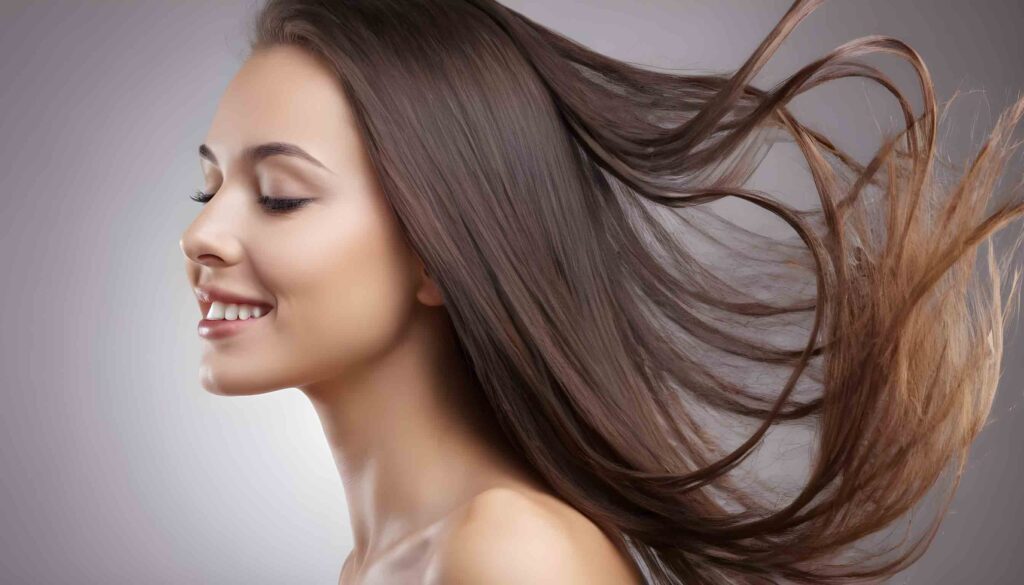
If your hair growth seems sluggish or your locks lack luster, don’t despair. There are many things you can do to support healthy hair growth. Follow these tips for longer, stronger, shinier strands.
Start with a nourishing hair care routine. Focus on gentle cleansing, thorough conditioning, and protective styling day-to-day. Use a moisturizing shampoo and conditioner free of harsh ingredients like sulfates. Hair masks with strengthening proteins and hydrating oils also boost hair health. Limit the use of hot tools that can cause damage over time.
Providing nutrition is vital too. Eat a balanced diet rich in proteins, omega-3s, antioxidants, and B vitamins to nurture hair from within. Take supplements like biotin, zinc, fish oil, or collagen for added support. Stay hydrated by drinking plenty of water as well.
Give your scalp some TLC. Massage it regularly when washing hair to increase blood circulation. Oils like rosemary, peppermint, and tea tree can also stimulate the scalp. Use clarifying shampoos to prevent product buildup. Exfoliate occasionally too.
Additionally, protects strands from unnecessary damage. Guard hair from UV rays, chlorine, and salt water. Avoid super tight hairstyles. Switch to soft, silk hair accessories. Handle hair gently overall and don’t overbrush. Manage stress through self-care activities as well.
Finally, get regular trims to nip split ends before they travel up the hair shaft. This helps support healthy growth.
Making hair health and growth a priority through smart hair care, scalp care, nutrition, and protection will help you achieve longer, fuller, healthier hair over time. Consistency is key!
Habits of People With Gorgeous, Healthy Hair
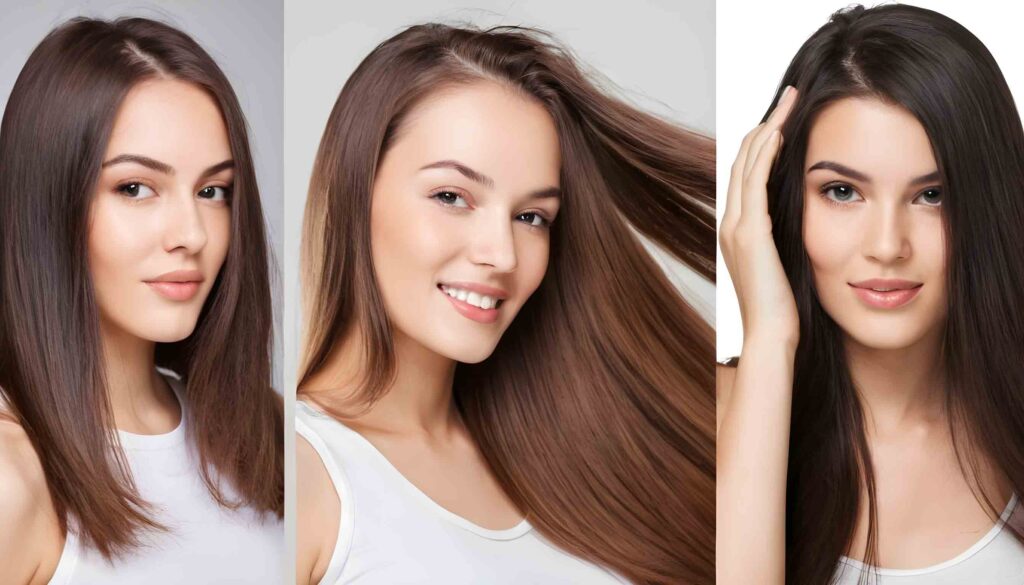
What’s the secret to strong, shiny, enviable hair? Ask someone with a stunning mane, and they’ll likely cite their daily and weekly hair care habits. People with beautiful, healthy hair tend to share certain routines.
The main theme is hair nourishment. They eat a nutrient-rich diet with plenty of protein, omega-3s, vitamins, and minerals to nurture hair from within. Supplements like biotin and collagen provide added support. They know hydration is key, drinking lots of water daily.
Healthy hair champions also practice protective maintenance. They use moisturizing shampoos and conditioners, limiting washing to 2-3 times per week. Deep conditioning treatments hydrate strands. They air dry when possible, limiting heat tool use. Braids, silk wraps, or buns prevent over-styling damage.
Scalp health is a priority too. They massage the scalp when washing to boost circulation. Clarifying shampoos remove buildup. Some exfoliate regularly as well. Scalp oils and masks provide nourishment. Silk pillowcases minimize friction overnight.
Additionally, they avoid unnecessary damage. Hair is shielded from chlorine, saltwater, and UV rays. Tight hairstyles that pull on strands are prevented. They opt for soft scrunchies over elastic hair ties. Hair is handled gently, not overbrushed.
Lastly, they get consistent trims, drink enough water, manage stress, and get their beauty sleep.
Making hair health and care a daily priority through nourishing, protective habits results in consistently strong, hydrated, shiny strands – the hallmarks of gorgeous, healthy hair.
Tips for Promoting Healthy Hair Growth
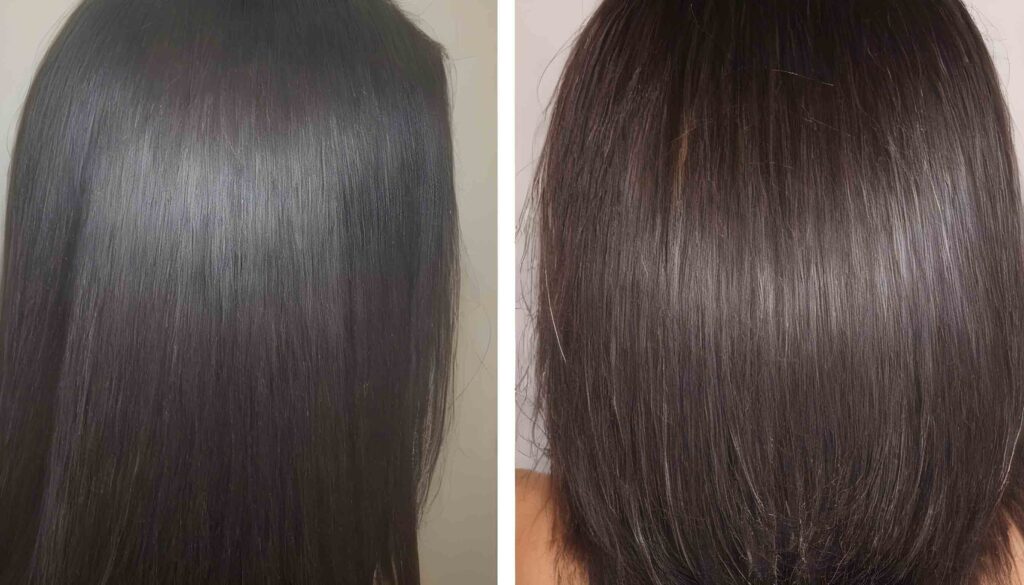
Want longer, fuller, healthier hair? While growth is partially genetic, there are many things you can do to maximize thick, shiny hair growth. Follow these tips for gorgeous locks.
Start with a nourishing hair care routine. Gently cleanse hair by washing just 2-3 times per week with a moisturizing shampoo and conditioner free of harsh sulfates. Use a weekly strengthening mask or treatment to boost moisture and repair damage. Limit the use of hot styling tools that weaken hair over time.
Next, focus on scalp health. Massage your scalp regularly when washing to increase blood flow. Use clarifying shampoos occasionally to remove product buildup. Essential oils like rosemary, peppermint, and tea tree can stimulate the scalp when applied. Exfoliate gently to remove dead skin cells.
Providing internal nourishment is also key. Eat a balanced diet rich in proteins, iron, zinc, omega-3s, and B vitamins to nourish hair follicles. Take supplements like biotin, collagen, fish oil, or Vitamin D for added support. Stay hydrated by drinking plenty of water daily.
Additionally, protects strands from unnecessary damage. Use heat protectant sprays before hot tools. Avoid hairstyles that pull tightly on the scalp. Opt for soft, silk hair accessories. Shield hair from chlorine, salt water, and UV exposure which can be drying.
Lastly, get consistent trims to prevent split ends from traveling up the shaft. This supports healthy growth. Manage stress and get enough sleep as well.
Following these tips for nourishment, scalp care, hydration, and protection will promote optimal hair growth resulting in shiny, voluminous, healthy hair.
Conclusion
Adopting healthy hair care habits is essential for enjoying consistently strong, shiny, beautiful hair. Make sure to use nourishing hair products free of harsh ingredients. Handle strands gently, limit heat styling, and get regular trims. Protect your hair from UV damage and keep your scalp clean. Drink plenty of water, eat a balanced diet, take hair vitamins, and manage stress. By being attentive to your hair’s needs and following smart hair care practices, you can achieve healthy, head-turning locks all year round. Consistency is key, so form good hair care habits and stick to them. With a diligent hair care routine focused on moisture, nutrition, and protection, you’re sure to love your healthy hair.
Frequently Asked Questions about Healthy Hair Habits
How can I keep my hair healthy?
Here are some tips for keeping hair healthy:
- Use a gentle, moisturizing shampoo and conditioner
- Wash hair just 1-2 times per week to avoid over-stripping oils
- Use a deep conditioner or hair mask weekly
- Let hair air dry when possible and limit the use of hot tools
- Avoid hairstyles that pull tightly on strands
- Use heat-protecting products when heat styling
- Get regular trims every 6-8 weeks
- Eat a balanced diet with plenty of protein, vitamins and minerals
- Take hair supplements like biotin, zinc, or vitamin D
- Manage stress and get adequate sleep
What is the healthiest hair routine?
A healthy hair routine includes:
- Washing 1-2 times per week with a gentle shampoo & conditioner
- Applying an intensive hair mask or oil treatment weekly
- Letting hair air dry naturally as often as possible
- Using heat protectants when blow-drying or heat styling
- Wearing hair in loose styles, avoiding too tight pulling
- Using soft scrunchies, fabric-coated elastics, and clips
- Getting a modest trim every 6-8 weeks to prevent split ends
- Switching up products seasonally as hair needs change
- Drinking lots of water and eating a balanced diet
How can I grow my hair healthy?
Tips for growing healthy hair include:
- Eat a diet rich in protein, iron, zinc, biotin and omega-3s
- Take hair vitamins and supplements if the diet
- Reduce stress through yoga, meditation, or other relaxing activities
- Get at least 8 hours of sleep per night
- Avoid hairstyles that pull tightly on the hair
- Alternate your part frequently to prevent thinning
- Avoid washing hair daily, which can strip oils
- Use a boar bristle brush to gently distribute scalp oils down the hair shaft
- Opt for loose, protective styles like braids or buns to avoid damage
- Use satin pillowcases and scrunchies to minimize friction
- Apply oil or serum to hair ends nightly to nourish and protect
- Limit the use of hot styling tools that can damage hair
- Get regular trims to prevent split ends from traveling up the shaft
- Use a clarifying shampoo weekly to remove buildup on the scalp
- Deep condition hair weekly to replenish moisture
- Protect hair from sun exposure with hats or protective products
The keys to maximizing healthy hair growth are providing proper nourishment, hydration, and being gentle with hair daily. With the right hair care regimen, you can help your strands grow faster and stay strong.
How can I improve my natural hair health?
For those with natural textures like curls, coils, and kinks, here are some tips:
- Use creamy, hydrating cleansers and conditioners free of sulfates
- Apply a hair mask or deep conditioner 1-2 times per week
- Seal in moisture with an oil or curl cream after showering
- Opt for wide-tooth combs, not brushes, to gently detangle natural hair
- Avoid over-manipulating or tightly pulling on delicate strands
- Use soft scrunchies, fabric headbands, and satin hair accessories
- Allow hair to air dry naturally instead of heat styling
- Refresh curls with a spray bottle of water or leave-in conditioner
- Protect hair at night by wrapping strands in a satin bonnet or scarf
- Get regular dusting trims to remove split ends before they spread
- Take hair vitamins with oils and antioxidants to nourish strands from within
Focus on keeping natural hair supple and hydrated to enhance health, shine, and definition.
What are the basic hair care tips?
- Shampoo gently 1-2 times per week, focusing on the scalp
- Condition hair after shampooing, concentrating on ends
- Blot hair with a towel to dry; avoid rubbing
- Use a wide-tooth comb or wet brush for gentle detangling
- Allow hair to air dry naturally when possible
- Apply a heat protectant before using hot tools
- Wear hair loose whenever you can
- Get trims every 6-8 weeks to prevent split ends
- Sleep on a satin pillowcase instead of cotton
- Eat a balanced diet rich in hair-healthy nutrients
- Manage stress through self-care activities
- Protect hair from UV exposure with hats or products
Sticking to these basic hair care principles helps maintain overall healthy hair and scalp.
How can I grow my hair faster naturally?
Some tips for naturally growing hair more quickly:
- Take hair supplements with biotin, vitamin D, zinc, and antioxidants
- Eat protein-rich foods like eggs, nuts, fish and lean meat
- Massage the scalp regularly to increase circulation
- Avoid tightly pulled hairstyles that place tension on the hair
- Reduce washing frequency to 2-3 times per week max
- Use leave-in treatments and masks to deeply nourish hair 1-2 times per week
- Get plenty of sleep and find healthy ways to manage stress
- Drink lots of water to hydrate hair follicles and boost growth
- Use natural oils like coconut, olive, or argan oil on the scalp and ends
- Get regular trims to prevent split ends from slowing growth
- Avoid excessive heat styling that weakens hair over time
With the right hair care regimen tailored to your locks, you can help maximize growth. Patience and consistency are key!
How can I grow my hair with healthy tips?
Here are more tips for growing healthy hair:
- Alternate the direction of your part often to prevent too much tension on the hairline
- Handle hair gently and avoid excessive brushing or handling
- Minimize the use of elastic hair ties, opting for fabric-covered scrunchies and ribbons
- Try protective styles like braids or buns on days you aren’t washing
- Let hair air dry naturally instead of blasting it with heat tools
- Apply oil or serum mid-length to ends nightly
- Use hydrating masks and treatments 1-2 times per week
- Consume collagen supplements or bone broth for hair protein
- Increase intake of biotin-rich foods like eggs, salmon, nuts and seeds
- Drink ample water and stay hydrated daily
- Get plenty of beauty rest with 8+ hours of sleep per night
Focus on being gentle, keeping hair moisturized, and maintaining a healthy lifestyle. This encourages healthy hair growth.
What are the 5 tips for healthy hair?
- Wash hair just 2-3 times per week
- Apply a deep conditioner or hair mask weekly
- Let hair air dry naturally when possible
- Protect strands with satin accessories
- Get regular trims every 6-8 weeks
Those are 5 simple yet effective tips for maintaining overall healthy hair!
How to get thicker hair?
Tips for getting thicker hair include:
- Use volumizing shampoos and conditioners that nourish hair
- Apply hair masks with thickening ingredients like biotin, collagen, and keratin
- Try massaging castor oil, rosemary oil, or other essential oils into the scalp
- Take hair supplements with B vitamins, silica, zinc, and vitamin D
- Get monthly trims to help hair grow thicker
- Use volumizing mousse, spray, or sea salt spray when styling hair
- Avoid tightly pulled hairstyles that can damage follicles over time
- Eat protein-rich foods like eggs, nuts, seeds, fish, and lean meat
- Manage stress through yoga, meditation, or other relaxing activities
- Use a boar bristle brush to distribute scalp oils down strands
Focus on hair health and targeted thickening products to help boost volume.
What are the health habits of hair?
Key hair health habits include:
- Washing hair just 1-2 times per week
- Using sulfate-free, gentle shampoo and conditioner
- Allowing hair to air dry instead of overusing hot tools
- Applying a hair mask or oil treatment weekly
- Sleeping on a silk pillowcase that is smoother on strands
- Getting a small trim every 6-8 weeks to prevent split ends
- Protecting hair from sun exposure with hats or SPF
- Managing stress through yoga, meditation, or journaling
- Drinking adequate water and eating a balanced, nutritious diet
- Taking biotin, collagen, zinc, Vitamin D, and other hair supplements
- Using soft scrunchies, fabric bands, and barrettes instead of elastic ties
- Handling hair gently overall and avoiding excessive manipulation
Making these positive hair care practices a regular part of your routine helps keep strands healthy and strong.
How is the hair of a healthy person?
Signs of healthy hair include:
- Shiny, vibrant, and lustrous when light hits it
- Smooth, frizz-free texture with defined clumps/waves
- Springy coils and curls that bounce back when stretched
- Sebum coats strands evenly from root to tip
- Easily detangles and glides through comb or brush
- Retains volume, shape, and style throughout the day
- Contains few to no split, frayed, or broken ends
- The cuticle layer lies flat and tight for decreased friction
- Good moisture balance, not overly dry or oily
- Scalp appears clean and flake-free, not irritated
- Follicles are strong, allowing hair to grow long and even
Healthy hair looks and feels strong, smooth, and radiant from the inside out. Proper nutrition and hair care make a big difference.
What makes hair healthy?
Several factors contribute to healthy hair:
- Adequate protein intake for building hair keratin
- Sufficient scalp circulation and blood flow
- Minimal damage from washing, drying, styling, and UV exposure
- Proper moisture balance – not too dry or too oily
- Gentle handling that minimizes breakage and tangling
- A nutrient-rich diet with vitamins, minerals, and antioxidants
- Use of moisturizing, and repairing hair products
- Limited use of hot styling tools that weaken hair
- Regular trims to prevent split ends from spreading
- Stress management and enough sleep for hair to rejuvenate
- Scalp massage to remove buildup and exfoliate skin cells
- Protective hairstyles that avoid too tight pulling on strands
Caring for hair inside and out leads to the healthiest, strongest locks possible.
What are the facts about healthy hair?
Interesting facts about hair health:
- Hair grows an average of 6 inches per year, about 1/2 inch per month
- Natural hair colors include black, brown, blonde, and red/ginger
- Human hair lasts approximately 5-7 years before naturally falling out
- Hair is composed mostly of a protein called keratin
- Each hair follicle on the scalp can be moved voluntarily
- Frequent hair washing does not make hair grow faster or slower
- Graying hair is a result of reduced pigment production as we age
- Hair grows quickest in warmer climates versus cold, dry ones
- Shoulder-length hair or longer puts the least tension on strands
- Curly hair is typically more fragile and prone to dryness than straight hair
- Blonde hair requires extra conditioning to prevent drying out
- Excessive sun exposure degrades hair protein and causes damage
Understanding the unique properties and needs of your hair helps you keep it at its healthiest!
How can I make my hair healthy naturally?
Some tips for naturally achieving healthy hair:
- Wash hair less frequently, just 2-3 times per week
- Use shampoos and conditioners made with natural ingredients
- Let hair air dry instead of overusing hot tools like blow dryers or straighteners
- Apply natural hair masks with ingredients like avocado, honey, or olive oil
- Drink lots of water and eat a diet rich in omega-3s, protein, antioxidants
- Take supplements like fish oil, biotin, zinc, and vitamin D
- Use hair brushes with natural boar bristles instead of plastic
- Sleep on a satin or silk pillowcase that causes less friction
- Opt for loose updos secured with soft fabric scrunchies when styling hair
- Manage stress through relaxing activities like yoga, meditation, journaling
Nurturing hair naturally helps restore health, shine, and softness.
How can I make my hair grow thicker and faster naturally?
Some natural ways to help hair grow thicker and faster:
- Massage the scalp with essential oils like rosemary, peppermint, or tea tree oil to stimulate follicles
- Take biotin supplements and use biotin-enriched thickening shampoos
- Eat more protein-rich foods like eggs, nuts, seeds, fish and beans
- Drink plenty of water to keep the scalp and hair hydrated
- Use castor, olive, or coconut oil on the scalp and hair ends
- Avoid tightly pulled-back hairstyles that place excess tension on the hair
- Get frequent trims to prevent split ends from traveling up the shaft
- Reduce stress through yoga, meditation, massage, or other relaxing activities
- Use silk pillowcases or bonnets at night to minimize friction during sleep
- Alternate your part frequently to prevent too much thinning in one area
Natural ingredients, lifestyle practices, and targeted products can optimize hair growth.
What is the secret of healthy hair?
The “secrets” to healthy hair include:
- Drinking plenty of water to hydrate strands from within
- Eating a balanced diet rich in hair-healthy nutrients
- Taking supplements like biotin, fish oil, and Vitamin D
- Using moisturizing, nourishing hair products free of harsh ingredients
- Letting hair air dry instead of over-styling with hot tools
- Wearing protective styles like braids, buns, or silk wraps at night
- Getting regular trims to prevent split ends from spreading
- Using soft hair ties, scrunchies, and headbands instead of elastic bands
- Managing stress through relaxing self-care practices
- Getting ample sleep, allowing hair to fully rejuvenate overnight
Focus on caring for hair inside and out. A healthy lifestyle plus good hair care habits equals strong, shiny strands!

